Hallasan National Park
한라산 국립 공원
Discover South Korea's highest mountain, a UNESCO World Natural Heritage Site
This dormant volcano, a UNESCO World Natural Heritage Site, stands at approximately 1,950 m in height. The mountain supports a wide range of biodiversity, from boreal to alpine plants and animals, and the summit is home to Baengnokdam Lake, which is famous for its massive crater lake. Because of the mountain's height and ruggedness, it is recommended that you bring hiking boots and drinking water. Some trails have limited access, such as limited climbing times and advance reservations, so find out more before you go.
Key Routes
- Hallasan Seongpanak Trail
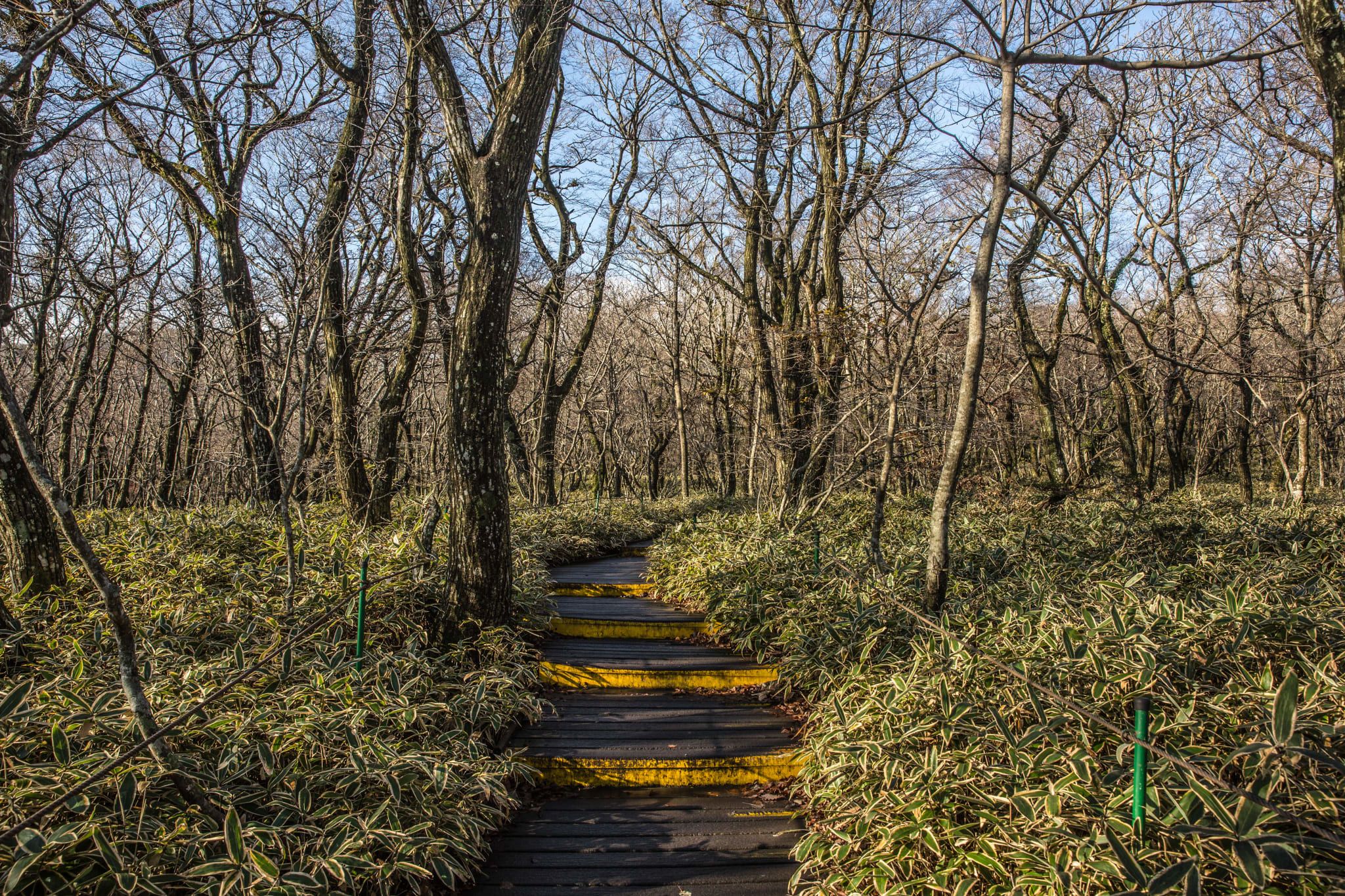
https://whereismynextadventure.com/2015/12/12/hiking-mt-hallasan/comment-page-1/
Trail for 'Baengnokdam', the longest of the Hallasan trails
- Hallasan Eorimok Trail
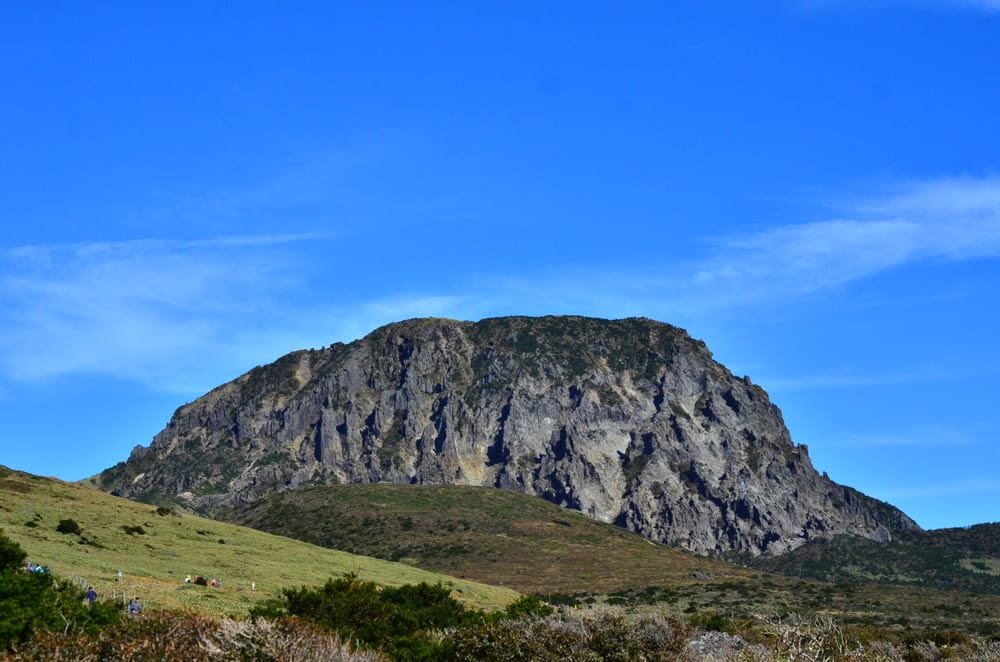
shutterstock.com
Trail that goes through the Eorimok Valley to the Nambyeok Junction
- Hallasan Yeongsil Trail
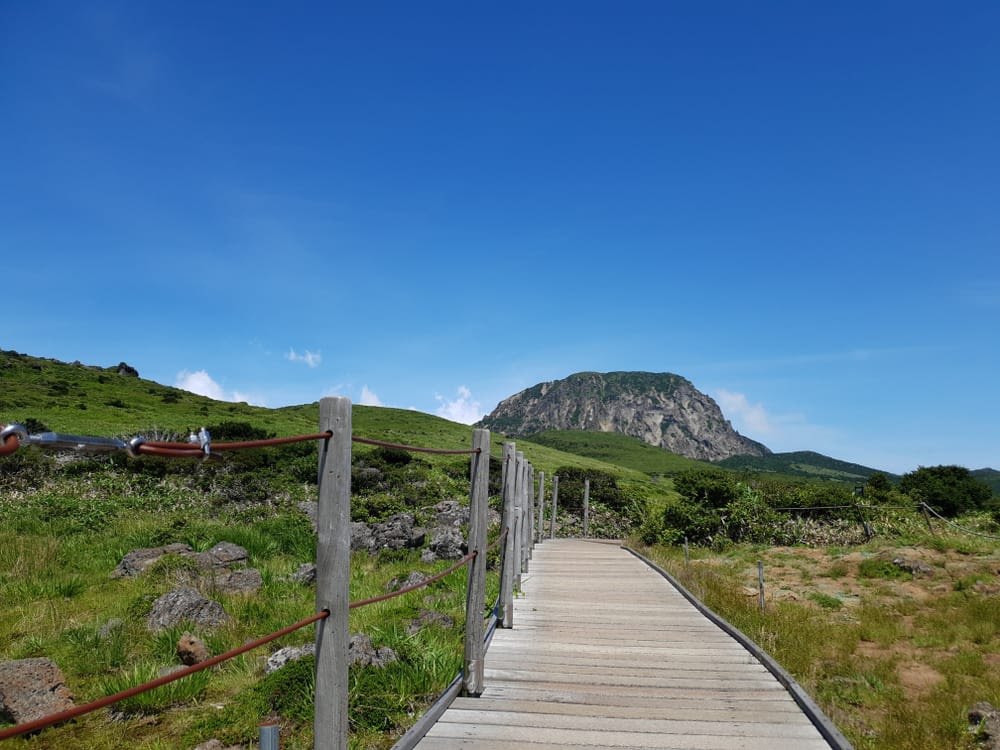
shutterstock.com
Popular Hallasan climbing course with a variety of attractions and flat terrain
- Hallasan Gwaneumsa Trail
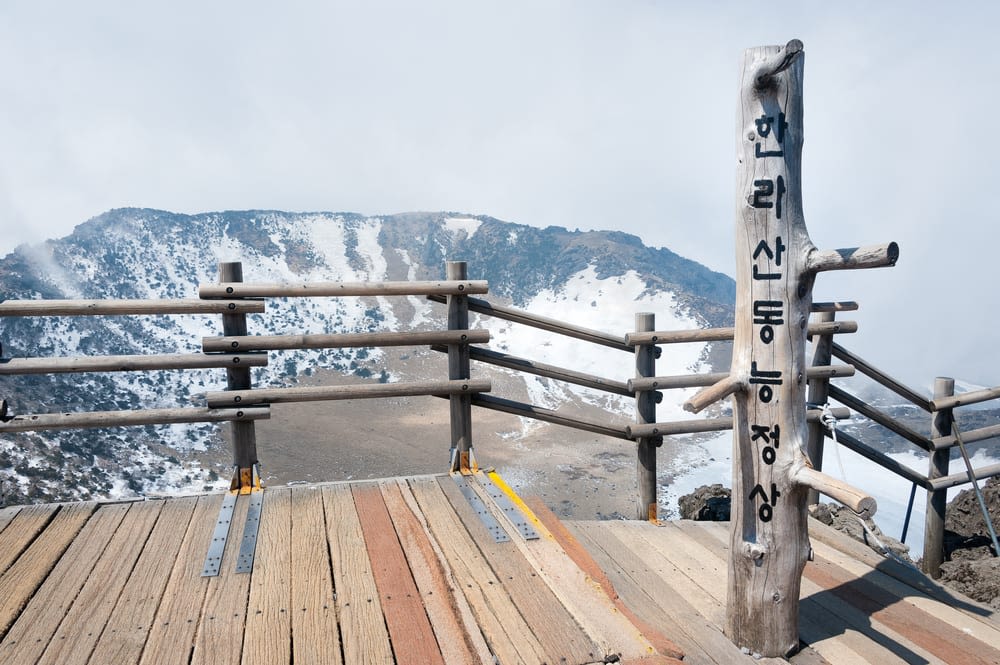
shutterstock.com
8.7-kilometer-long trail that leads to the top of Hallasan National Park's summit, Baengnokdam Lake
- Hallasan Donnaeko Trail
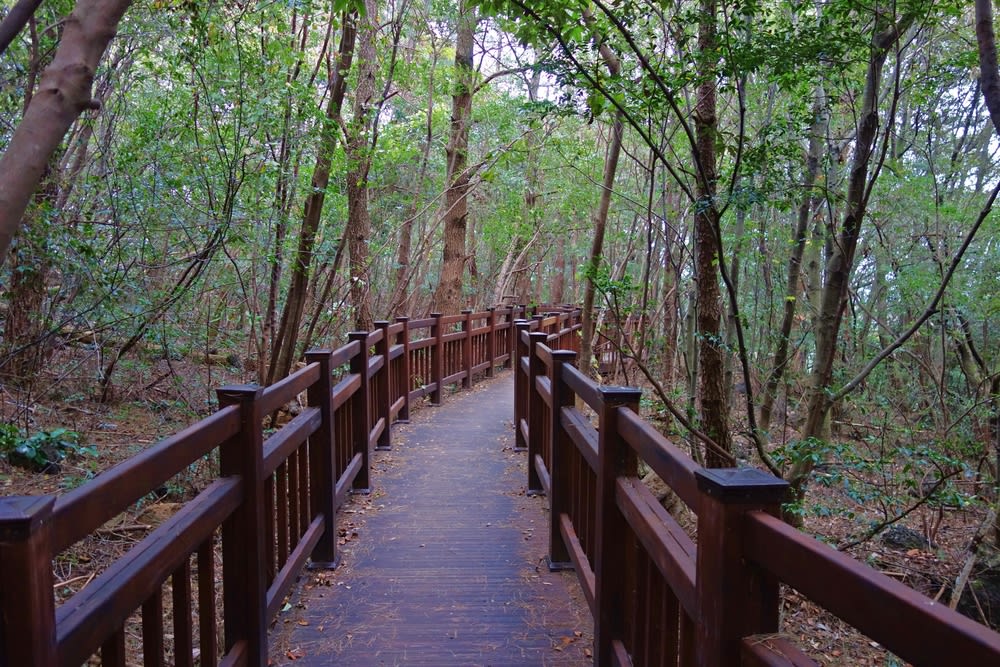
shutterstock.com
7.7-kilometer-long trail through evergreen, deciduous, and boreal forests
- Hallasan Eoseungsaengak trail
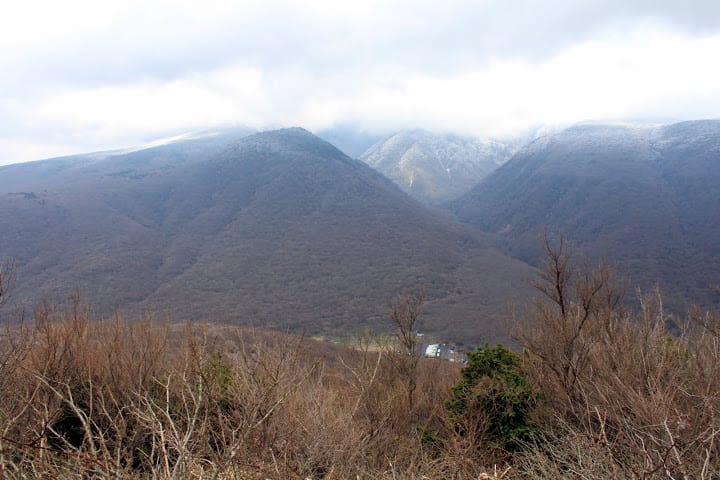
http://lifeinbirmingham.blogspot.com/2011/04/seoul-day-6.html
1.3-kilometer-long trail that offers a panoramic view of 'Biyangdo Island' and 'Seongsan Ilchulbong Tuff Cone' in good weather
- Hallasan Seokgulam Trail
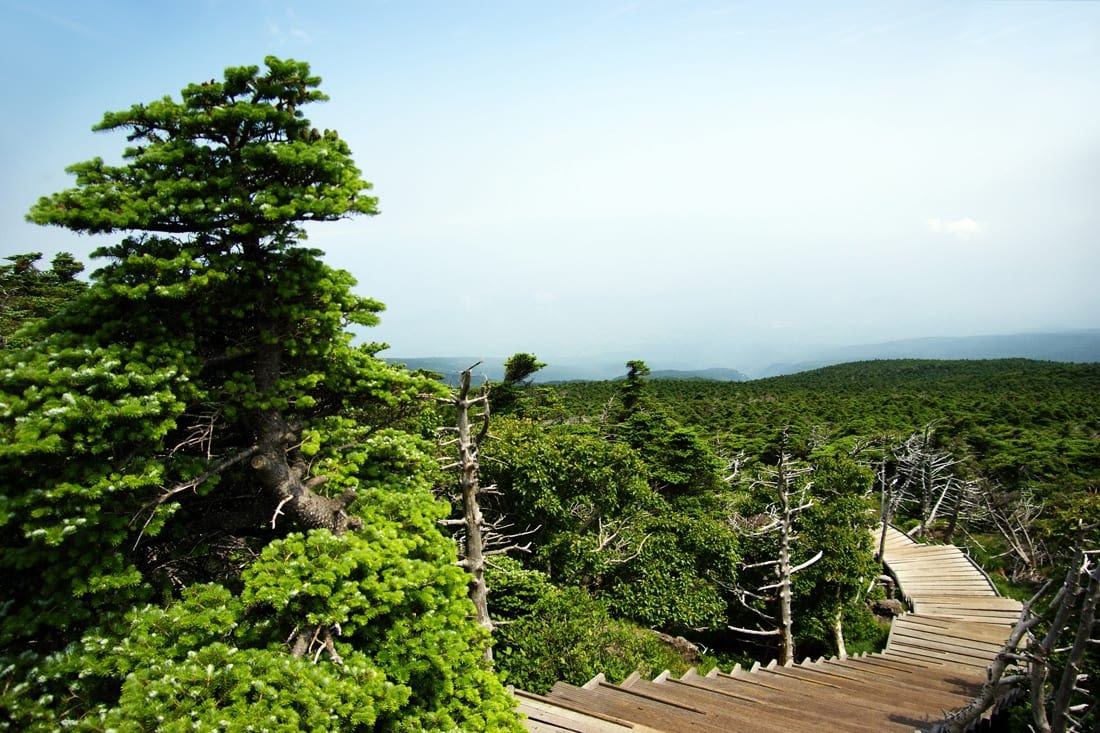
https://commons.wikimedia.org/wiki/File:Abies_koreana_Halla_San_1.jpg?uselang=aa
1.5-kilometer-long trail where you can enjoy a light stroll in a forest of pine and broadleaf trees
Information
How to get there
- Hallasan Seongpanak Trail: 16 min drive from Sangumburi Crater - Hallasan Eorimok Trail: 19 min drive from Halla Arboretum - Hallasan Yeongsil Trail: 20 min drive from Jungmun Daepo Jusangjeolli Cliff
Insider Tips
Parking 1,000 won for passenger cars, 500 won for two-wheelers
Advance reservation required (website)
Seasonal - Entry time varies by course (see website)
Sneakers or hiking boots recommended
Drinking water recommended
